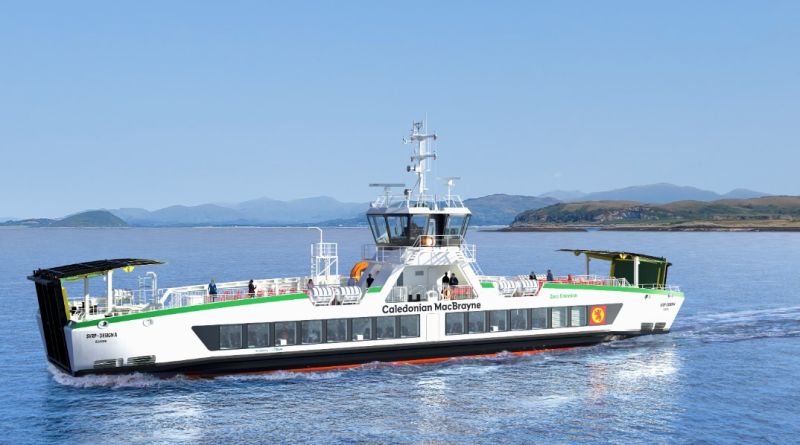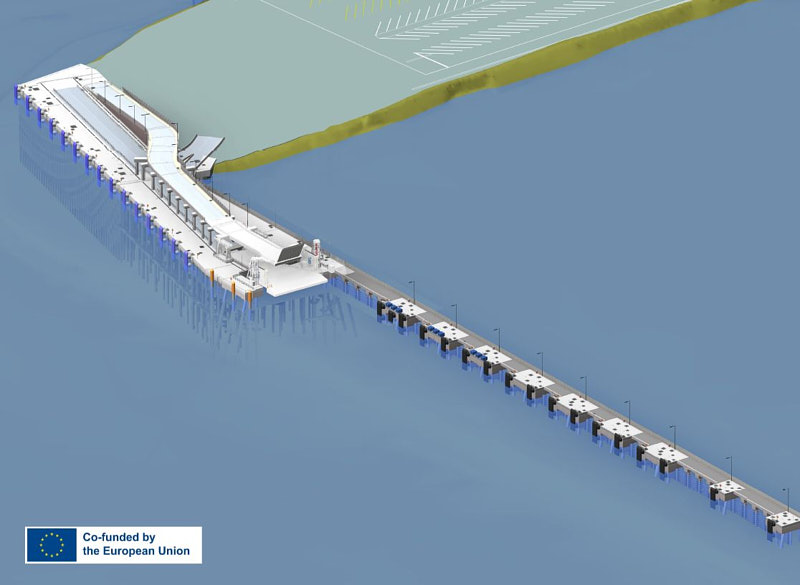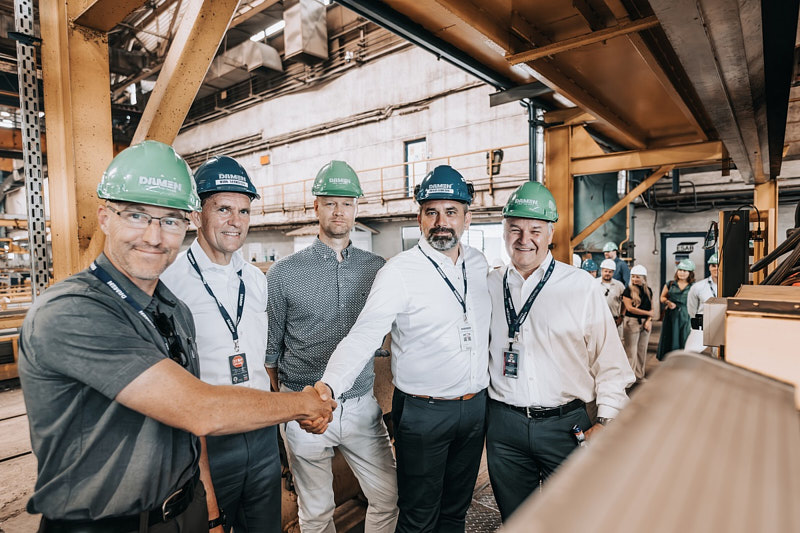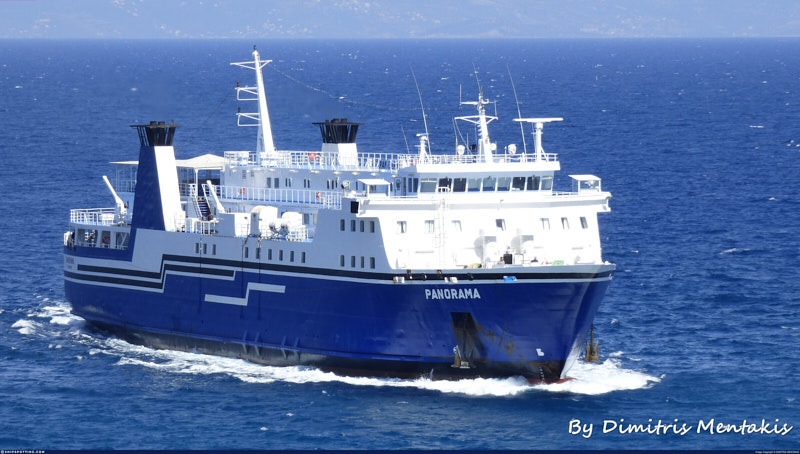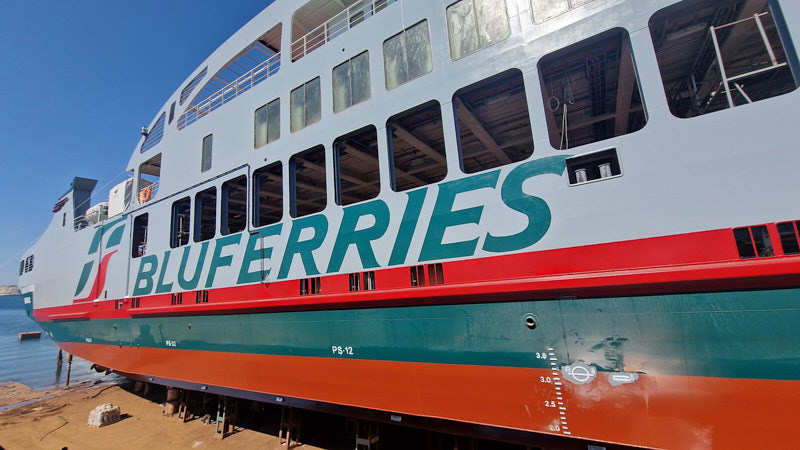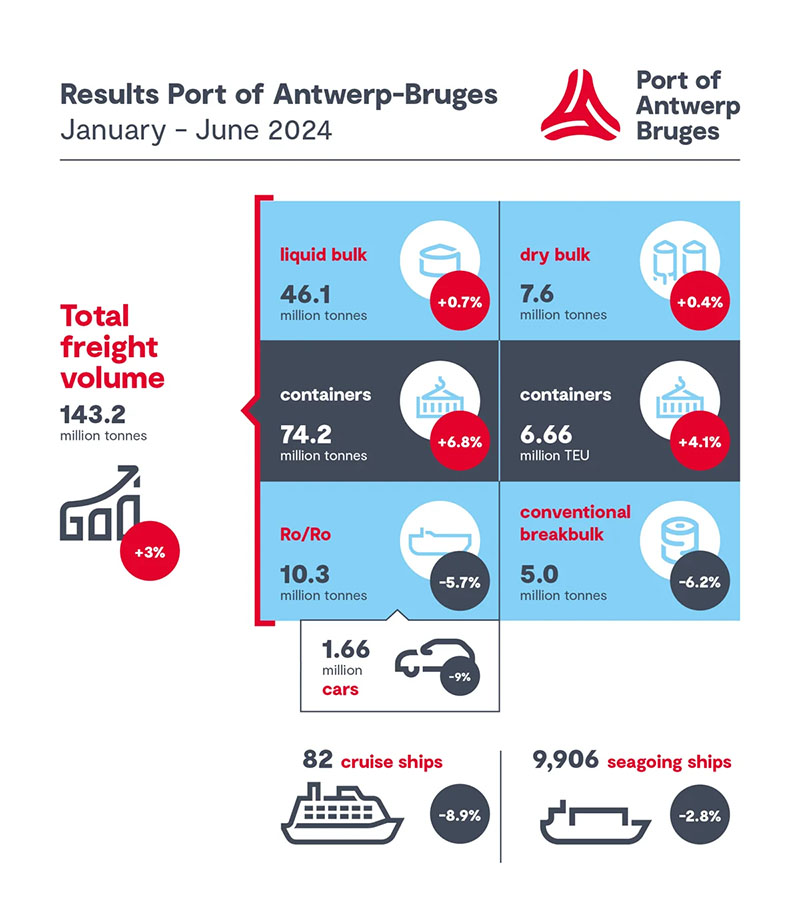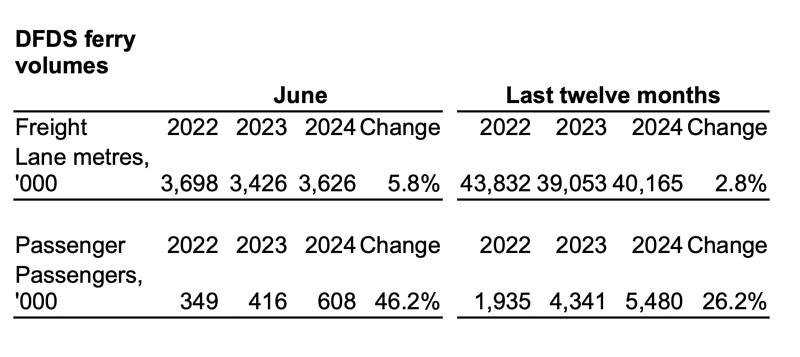Bluferries, the company part of the FS Italiane Group operating in maritime transportation in the Strait of Messina, C.T.E. Perdikaris Engineering, Architectural & Technical Services Ltd., and RINA, announced the launch of the hybrid RoRo passenger ship named Sikania II.
“This innovative vessel is set to revolutionize passenger travel between Villa San Giovanni (Reggio Calabria) and Messina, Italy” is written in a statement from the firms involved.
Designed by the Greek company C.T.E. Perdikaris and built in Greece by Celt under Rina surveillance, this vessel represents a significant leap forward in sustainable maritime technology.
This vessel measures approximately 105m in length and is designed to transport 22 heavy vehicles or 125 cars and 400 persons.
The true innovation of this vessel lies in its use of green technologies. The ship is equipped with four azimuth thrusters Z-drive, each connected directly to one diesel engine of 1,000kW and one electrical motor of 350kW. The electrical motors are connected to NMC batteries with an energy storage capacity of 1MWh. The vessel is energy-independent, featuring an advanced energy management system.
During navigation, the batteries can be charged through the electrical motors acting as shaft generators. The stored energy is used for hybrid propulsion, combining diesel engines and electric motors to supply power to the azimuth thrusters. When approaching port, the vessel operates on fully electric propulsion for zero emissions during all maneuvering, loading, and unloading operations. Additionally, solar panels fitted on board provide 25kW of power, supplying all ship accommodation services.
